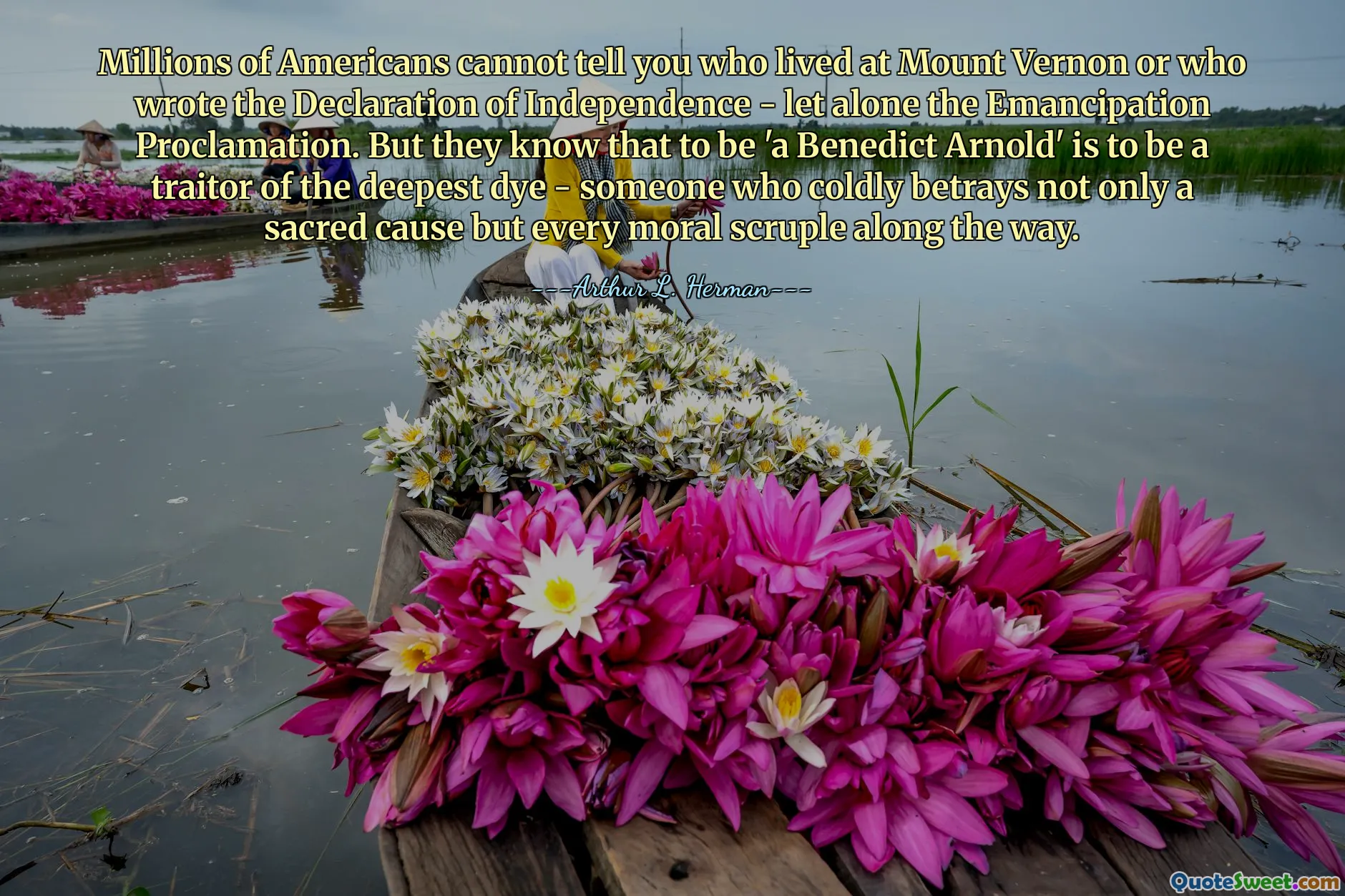
Millions of Americans cannot tell you who lived at Mount Vernon or who wrote the Declaration of Independence - let alone the Emancipation Proclamation. But they know that to be 'a Benedict Arnold' is to be a traitor of the deepest dye - someone who coldly betrays not only a sacred cause but every moral scruple along the way.
This quote by Arthur L. Herman offers a profound commentary on collective memory and cultural awareness. While many Americans may lack detailed knowledge of fundamental historical facts—such as key figures or pivotal documents—the name 'Benedict Arnold' remains universally synonymous with deep betrayal. This paradox highlights how cultural narratives often distill complex history into powerful symbols or archetypes that carry strong ethical and emotional weight.
The reverberation of Arnold's name in the public consciousness speaks to the human tendency to remember moral lessons through the lens of personal stories rather than abstract historical data. Benedict Arnold’s legacy as a traitor is not merely about his actions in a particular historical moment; it symbolizes the ultimate betrayal of trust and values. In this regard, his story transcends historical knowledge, becoming a moral reference point against which loyalty and integrity are measured.
Moreover, the quote implicitly critiques the state of historical education and public knowledge, raising questions about what we choose to remember and why. It suggests that while detailed knowledge about specific historical events may fade, the narratives with strong moral implications endure. This invites reflection on how societies prioritize and preserve their collective memory and whether the lessons conveyed through symbolic figures like Arnold are enough to foster a truly informed citizenry.
Ultimately, this passage challenges readers to think about the balance between knowledge and values in public education and cultural identity. It stresses the importance of not just knowing historical facts but also understanding the moral dimensions wrapped within those stories—a critical approach to history that informs not just the mind but also the conscience.











